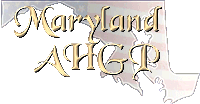The Convention Movement
At present, National race conventions, of various kinds,
are quite familiar to all. The ''Convention Movement"
has reference to the very beginning of such assemblies
in this country among our people. Of course, before the
Civil War such were necessarily confined to "free
persons of color." In the years following the War of
1814, the troubles, disadvantages, and oppression of
''free colored persons" in the so called free states
multiplied and increased. The air was filled with
colonization schemes, and the various uprisings among
the blacks, in other sections of the country,
contributed towards rendering the lot of the free
colored person far from being a happy one.
The idea of holding a convention of free colored
persons, somewhere in the Free states, was born in the
mind of Hezekiah Grice, a free person of color of the
city of Baltimore. Early in the spring of 1830 he sent
out a number of circulars to free colored men in the
various Free states to elicit their views. A primary
meeting was held, shortly, in the city of Philadelphia,
and the call for the convention was formally sent out,
which convened in that same city of Philadelphia on the
15th of September, 1830. The convention was held in
Bethel Church, and Bishop Allen was its president. The
delegates attending from the city of Baltimore were:
Hezekiah Grice, James Deaver, Aaron Wilson and Robert
Cowly.
There were forty delegates present, representing seven
states: Connecticut, Rhode Island, New York,
Pennsylvania, Delaware, Maryland and Virginia. The
convention registered its protest against the
colonization scheme and appointed committees to make
investigation with respect to settlements in some part
of Canada. These conventions became a fixed annual
institution, and were regularly held until the Civil
War. The convention of 1831 is memorable from the fact
that the ''free colored persons'' of that day seemed to
have anticipated both Hampton and Booker T. Washington.
In the former convention something was said of the
need of a "Manual Training School," and adequate land
had been tendered for the purpose, near New Haven, Conn.
But the white people of that vicinity vigorously
"protested" against the establishment there of such an
institution for colored people.
But, of Hezekiah Grice we know but little. He was a man
of considerable ability, an ardent race lover, and an
aggressive anti-slavery man. He was associated with
Benjamin Lundy and William Lloyd Garrison in the
publication in Baltimore of "The Genius of Universal
Emancipation." When the publishers of that paper were
mobbed and their plant destroyed, he fled with them, but
subsequently he returned. He organized in Baltimore, in
that early day, among the free colored people, a "Legal
Rights Association." A few years after, he emigrated to
Haiti, where he became a large contractor. A daughter of
Hezekiah Grice, Miss Elizabeth, became the wife of the
Rev. William Douglass, rector of St. Thomas' Church,
Philadelphia. Mr. Douglass, himself, was ordained to the
Episcopal ministry by Bishop Stone, an Eastern Shore
man, and a lineal descendant of Governor Stone, of
Colonial days in Maryland.
Maryland
Biographies | Maryland
AHGP

Source: Gazetteer of Maryland,
by Henry Gannett, Washington, Government Printing
Office, 1904.
|



